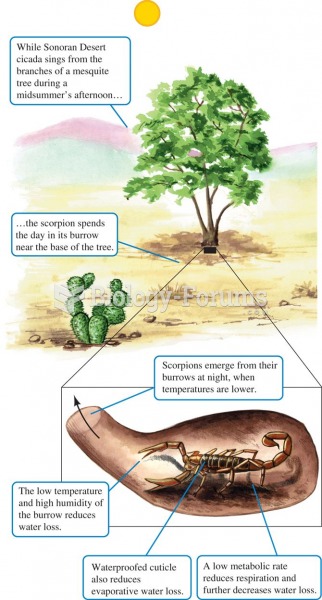|
|
|
If you could remove all of your skin, it would weigh up to 5 pounds.
The average office desk has 400 times more bacteria on it than a toilet.
Urine turns bright yellow if larger than normal amounts of certain substances are consumed; one of these substances is asparagus.
Stevens-Johnson syndrome and Toxic Epidermal Necrolysis syndrome are life-threatening reactions that can result in death. Complications include permanent blindness, dry-eye syndrome, lung damage, photophobia, asthma, chronic obstructive pulmonary disease, permanent loss of nail beds, scarring of mucous membranes, arthritis, and chronic fatigue syndrome. Many patients' pores scar shut, causing them to retain heat.
In 1886, William Bates reported on the discovery of a substance produced by the adrenal gland that turned out to be epinephrine (adrenaline). In 1904, this drug was first artificially synthesized by Friedrich Stolz.
 These two desert arthropods, a scorpion and a cicada, have evolved very different approaches to livi
These two desert arthropods, a scorpion and a cicada, have evolved very different approaches to livi
 To reduce stress on your client’s neck when the head is turned, put a towel under the shoulder and ...
To reduce stress on your client’s neck when the head is turned, put a towel under the shoulder and ...





